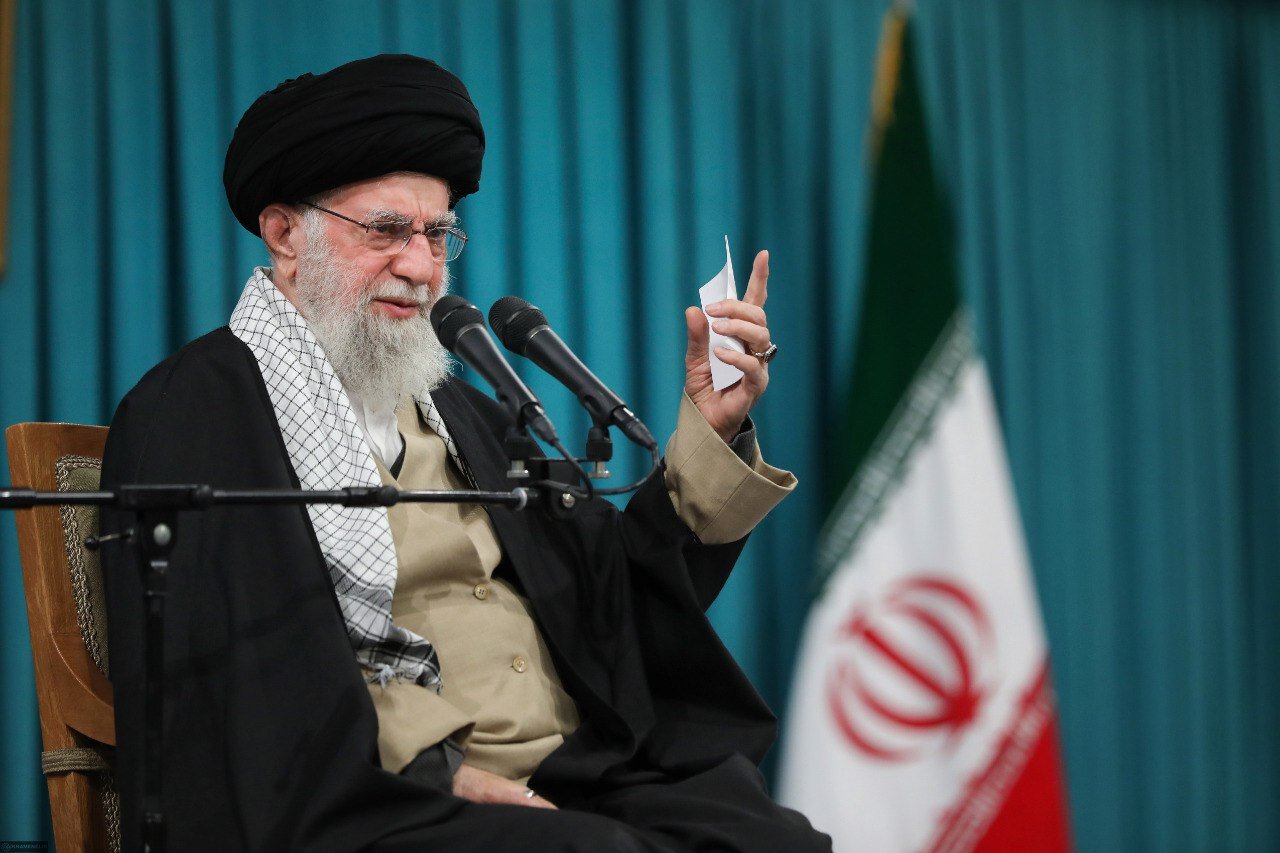Iran well-prepared for hard warfare threats: Leader

TEHRAN – The Leader of the Islamic Revolution, Ayatollah Seyyed Ali Khamenei, lauded Iran’s military and defense sectors for achieving a high level of preparedness against conventional threats, while urging those in the media and entertainment industry to strive for similar levels of assurance and readiness in their respective fields.
In a Monday meeting with thousands of East Azerbaijan citizens in Tehran, The Leader described Iran's hard warfare defense capabilities as extremely high, stating, "Both our allies and enemies are aware of this fact, and the [Iranian] nation feels secure in this matter. Therefore, our current issue is not the enemy’s military threats, but rather the threats posed by soft warfare."
Ayatollah Khamenei defined "soft warfare threats" as the manipulation of public opinion, the instigation of divisions, and the cultivation of doubts regarding the "foundations of the Islamic Revolution and the importance of remaining resolute against enemies." He noted that adversaries believe that the best way to defeat Iran is through soft warfare, but "these efforts have not been successful thus far, and despite their temptations, they have failed to deter the Iranian nation and youth from their determination and progress."
The Leader particularly characterized this year's massive nationwide rallies marking the 46th anniversary of the Islamic Revolution as proof that soft warfare threats are failing. "The extraordinary and magnificent turnout, even 46 years after the Revolution's triumph, is unparalleled globally. The people have shown that their challenges and rightful expectations don't prevent them from participating in support of the Revolution," he declared.
He stressed the greater importance of soft warfare defense over hard warfare defense in the current environment, explaining: "Shortcomings in hard warfare defense can be offset by soft warfare defense, as has often been the case. However, software problems cannot be solved with hardware (military) solutions."
Ayatollah Khamenei encouraged the youth to bolster their soft warfare defense by learning about the Revolution's principles, characteristics, and the teachings of the late Imam Khomeini (RA). "Our Revolution, at its core, is a battle of 'light against darkness' and 'truth against falsehood.' It seeks to uplift the Iranian nation, improve its future, and showcase its national identity," he noted.
During the address, the Leader also underscored progress made toward the Revolution's goals. "The Revolution has remained an independent force, a significant source of inspiration for regional nations and some beyond. The resentment of global powers, colonialists, and those who commit atrocities under false pretenses, stems from the Islamic Republic's demonstrated resilience, steadfastness, and ability to stand strong against them."
Ayatollah Khamenei refuted Western claims that Iran provokes its enemies. He stated that "the hostility from tyrannical U.S. policymakers is not due to the slogan 'Death to America,' but rather because Iran, through its people's determination and sacrifices, liberated itself from colonial oppression and resisted their impositions."
He characterized U.S. rhetoric and territorial demands as a manifestation of the imperialists' and Zionism's "abhorrent, violent, plundering, and domineering nature." Ayatollah Khamenei added: "They cannot tolerate the fact that the Iranian nation, by standing on its own feet and protesting against their oppression and aggression, has established a government which, after 46 years, has grown stronger day by day."
‘Azerbaijan is Iran’s stronghold against foreign aggression’
Elsewhere in his remarks, the Leader referred to Azerbaijan and Tabriz as the stronghold of Iran against foreign aggression. "Through their patience, steadfastness, and faith, the people of Tabriz have on multiple occasions forced the enemies to flee" he stated.
Ayatollah Khamenei identified the "Islamic faith" and "religious zeal" of the people of Tabriz as the two primary factors behind the uprising on February 18, 1978, which played a significant role in the subsequent victory of the Islamic Revolution.
The Leader underscored that the significance of this uprising extended beyond the mere fact that it compelled the Pahlavi regime to deploy tanks in the streets. Its true greatness, he asserted, lay in its role as a model for the entire nation, inspiring individuals from various cities to join the struggle.
He praised the faith and spirit of today's youth in Tabriz as a continuation of the legacy from the 1978 uprising.
Leave a Comment